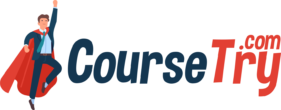Do you need help with what career path to take? Do you find yourself daydreaming about a future where you wake up excited and fulfilled, eager to start your day? It’s never too late to choose a career that aligns with your skills and interests, one that will bring meaning and purpose to your life.
Finding the right career is important for many reasons. First and foremost, it allows you to be true to yourself and your passions, leading to greater happiness and overall life satisfaction. Additionally, aligning your career with your skills and strengths can lead to more success and productivity in the workplace.
Of course, choosing a career is not always an easy task. With so many options and factors to consider, it can feel overwhelming and even paralyzing at times. But fear not! With some guidance and introspection, you can discover the right career path for you and take your first steps toward a fulfilling career.
Contents
- 1 What is a Career Path?
- 2 10 Steps On How To Choose A Career Path That Aligns With Your Skills
- 2.1 ① Assess Your Skills
- 2.2 ② Discover Your Personality Type
- 2.3 ③ Identify Your Interests
- 2.4 ④ Research Career Paths
- 2.5 ⑤ Consider Education and Training
- 2.6 ⑥ Evaluate Job Market Demand
- 2.7 ⑦ Consider Your Salary Needs
- 2.8 ⑧ Find and Apply For Jobs
- 2.9 ⑨ Don’t Sacrifice Your Values
- 2.10 ⑩ Continue Growing and Learning
- 3 Frequently Asked Questions
- 3.0.1 Q: What is the difference between a career test and a career assessment?
- 3.0.2 Q: What are some effective strategies for conducting career exploration and finding your ideal job?
- 3.0.3 Q: How can continuous career development aid in job growth and professional advancement?
- 3.0.4 Q: Is it necessary to have a mentor when starting my career path?
- 3.0.5 Q: How can a career change lead to a better job opportunity?
- 4 Final Words
What is a Career Path?

A career path is essentially the journey you embark on while building your career. It’s a roadmap that outlines the different steps, milestones, and opportunities you will encounter while pursuing a particular profession. Think of it like a personal GPS guiding you through the twists and turns of your professional life.
Your career path is a unique and personal journey that is tailored to your skills, interests, and professional ambitions. There’s no one-size-fits-all approach when it comes to developing your career. It’s a process that involves trial and error, exploration, and discovery.
You might start your career as an intern, work your way up to a junior position, gain more experience, eventually become a senior executive, and then possibly even start your own company! The possibilities are endless, and that’s what makes it so exciting.
10 Steps On How To Choose A Career Path That Aligns With Your Skills
Now, let’s look at the steps you can take to choose a career path that aligns with your skills and interests.
① Assess Your Skills

Assessing your skills is important because it helps you identify what you’re good at and what you enjoy doing. This can give you a great starting point for exploring career options and finding a path that will be fulfilling for you. Without knowing your skills, it’s hard to determine which jobs would be a good fit for you.
There are many ways to assess your skills, from self-reflection to online assessments.
➣ Identify Your Skills
Begin by making a list of the talents and abilities you’re confident you have. Include skills you’ve acquired throughout your academic and professional life, but also look at your hobbies and interests too. You might be surprised to learn that some of the things you love doing in your free time could be potential skills used in a professional setting.
Don’t shy away from noting down soft skills like communication, teamwork, and critical thinking as well. Once you have an extensive list down, you’ll be in a better position to identify your niche areas of expertise, potential skill gaps, and overall career goals.
➣ Evaluate Your Competencies
Now, I know the sound of this might seem intimidating, but don’t worry; it’s simpler than it sounds. Assessing your skills based on your competencies is important because it will give you a clear understanding of where you stand and what you need to do to improve.
So, let’s break it down. Competencies are your personal qualities or characteristics that make you unique and able to perform certain tasks. For example, that’s a competency if you’re great at public speaking. Once you’ve identified your competencies, it’s time to evaluate which skills fall under each of them. This way, you can determine which skills are your strengths and which need improvement.
Now comes the fun part. Celebrating your strengths and appreciating the skills that come naturally to you is always great. However, don’t get too comfortable. It’s equally important to work on improving your weaker skills to become a well-rounded individual.
➣ Use Online Assessments
One great website I highly recommend for this purpose is Udemy. Using Udemy’s online assessments, you can test your knowledge and abilities in various subjects, from programming languages to marketing techniques.
These assessments are designed to be fun, interactive, and informative, providing a clear picture of where you stand regarding your skills. Plus, with Udemy’s wide variety of assessments, you’re sure to find something that fits your interests and needs.
But that’s not all – Udemy also offers a wealth of learning opportunities to help you continue developing your skills. From online courses to interactive workshops, you can take advantage of these resources to build your knowledge and expertise in your chosen field.
➣ Seek Feedback
Seeking feedback is essential to the process and can provide valuable insights into areas you may not have considered before. It’s important to ask for feedback from people who know you well and have experience working with you. This could include former colleagues, supervisors, or friends.
Receiving feedback can be tough, but it’s important to approach it with an open mind and without taking things personally. Remember that feedback is designed to help you grow and improve your skills, not to criticize you. Take the advice you receive and use it to build a more well-rounded assessment of your strengths and weaknesses.
It’s also important to be specific when requesting feedback. Ask questions that will provide detailed responses, such as “What areas do you think I excel in, and where do you think I could improve?” And don’t forget to thank those who take the time to share their thoughts with you and acknowledge their contributions.
➣ Set Goals For Improvement
What’s next? It’s time to set some goals for improvement! This step is crucial because it outlines a clear plan of action for achieving growth in your skill set.
To get started, consider using the SMART framework to create specific and measurable goals that are achievable, relevant, and time-bound. For example, if you’re looking to improve your public speaking skills, set a goal to attend at least one public speaking event each month, where you’ll practice and receive feedback. Then, track your progress along the way and adjust your plan as needed.
The key to success here is to stay motivated and committed to your plan. Remember that improvement takes time and effort, but with a clear goal, a solid plan, and a supportive mindset, you’re sure to make progress and achieve your desired level of skill.
② Discover Your Personality Type
Everyone has a unique personality that shapes their perspective, preferences, and the way they interact with the world. Understanding your personality can help you to identify careers that align with your interests and natural abilities.
For example, if you’re an introvert who enjoys analytical thinking, a career as a data analyst might be a great fit for you. Alternatively, if you’re a creative extrovert who enjoys working with people, a career in advertising or event planning might be more your cup of tea.
The process of discovering your personality type involves reflecting on your strengths, weaknesses, passions, and values. Taking personality tests or speaking to a career counselor can also be helpful.
③ Identify Your Interests

Identifying your interests is a crucial step to finding a career path that aligns with your skills. Why, you ask? Well, when you choose a career based on your interests, you’re more likely to enjoy your work, have higher job satisfaction, and be more invested in your career success. Plus, you’ll have a natural curiosity and drive to learn and grow in your chosen field.
Now, don’t worry if you’re unsure what your interests are. It’s normal to feel unsure, confused, or overwhelmed when it comes to choosing a career path. That’s why I recommend exploring various career paths—try different things, talk to people in different industries, and take online quizzes to discover your passions.
You might be surprised at what you find! Remember, you don’t need to figure it all out immediately. It takes time to find the perfect fit, and the journey is just as important as the destination.
④ Research Career Paths

Researching career paths isn’t rocket science but requires some effort. It will also help you avoid any potential surprises, such as a job being completely different from what you expected.
You’ll want to start by examining job postings and descriptions to understand various roles’ day-to-day tasks and responsibilities. Look at the qualifications and skills required for each job and determine if you possess those same skills.
If you want to take your research to the next level, try job shadowing or setting up informational interviews with people who work in the fields you’re interested in. Job shadowing is an opportunity to observe a professional in their day-to-day work and get a feel for whether that kind of work environment is right for you.
Conversely, an informational interview offers the chance to speak with someone working in the field and learn more about their experiences and the challenges they face.
It’s important to remember that researching career paths is a process. You may have to explore many jobs before finding the perfect fit. Be open-minded and willing to try new things. Maybe a job you’ve never considered before is actually something you’d love doing.
⑤ Consider Education and Training

Once you’ve identified your interests and explored potential career paths, it’s time to think about the education and training required for each one. In some cases, experience may be more important than formal qualifications, so don’t discount opportunities that involve an apprenticeship or on-the-job training.
At the same time, if you’re interested in a field that requires specific education or professional qualifications, it’s important to understand how long the process might take and what types of courses you’ll need to take. Additionally, many jobs now require additional certifications and training courses after graduation, so factor this into your research.
For example, if you want to be a doctor, you need to attend medical school and obtain a license to practice. Similarly, if you want to be a software developer, you need to gain programming skills and knowledge to become proficient. There are also various educational paths to take, such as earning a degree or certification or attending trade schools.
It’s crucial to research what education and training requirements are needed for the potential career path you want to pursue. Look into job postings, ask professionals in the field, or connect with alumni who are working in similar positions.
By doing this, you can determine what skills, certifications, or degrees are required and how long it will take to obtain them. Thus, you can factor in the cost of the program and the anticipated salary or job prospects after completing the education and training.
⑥ Evaluate Job Market Demand

Once you have a better understanding of the education and qualifications required for a certain career, it’s time to assess the job market demand. This involves researching the availability of jobs in your desired field and the pay scale, benefits packages, and other associated factors.
You can research job postings on various platforms like LinkedIn or Glassdoor to understand the types of jobs available and get an idea of what employers are looking for. You can also reach out to professionals in your desired field, attend job fairs, or network with people working in the field to learn more about career opportunities.
Finally, consider talking to a career counselor or mentor who is familiar with the job market. They can give you insight into the latest trends and changes in the industry and provide advice on how to make yourself more attractive as a candidate.
Keep in mind that job market demand can change over time, so it’s important to stay up to date with the latest trends. Consider continuing education or training to keep your skills relevant and in demand.
⑦ Consider Your Salary Needs

When it comes to picking a career pathway, salary is an important factor. It’s essential to research average salaries in the field and any benefits packages that might be associated with certain positions.
The first step in considering your salary needs is to research the industry you’re interested in. Look up salary ranges for entry-level, mid-level, and senior positions, as well as the average salary for the field as a whole. This will give you a good idea of what to expect and how much you might need to earn to meet your financial goals.
Next, consider your lifestyle and spending habits. Will you be able to live comfortably on the salary you might earn in your chosen career? Will you have enough money to save, invest, and enjoy your free time? If not, you may need to reassess your options and look for a career with higher earning potential.
Another factor to consider is your long-term career goals. Do you have aspirations to reach higher levels of management, or do you plan to stay in a lower-level position? If you want to advance in your career, choosing a field with opportunities for growth and development is important. This will allow you to learn new skills and take on more responsibilities, which can lead to higher salaries and greater job satisfaction.
Once you’ve considered all these factors, you can decide whether a certain career path is the right one for you.
⑧ Find and Apply For Jobs

Once you’ve researched the career path and job market, it’s time to start looking for a job. Start by creating a resume that highlights your qualifications and interests and any relevant work experience or certifications.
You can then search for open positions on job boards such as Indeed or contact companies directly with your resume and cover letter. You can also attend job fairs or network with professionals in your desired field to get an inside look at potential opportunities.
When applying for jobs, don’t be afraid to reach out to people you know who work in the industry. Ask them if they know of any open positions or have any advice on making yourself stand out as a candidate.
Remember to stay organized throughout the job-search process. Keep track of job postings you’ve applied for, companies you’re interested in working for, and contacts you’ve made along the way. This will help ensure that nothing slips through the cracks during your search.
⑨ Don’t Sacrifice Your Values
When it comes to choosing a career field, it’s easy to get caught up in what seems to be the “right” choice based on societal norms or the expectations of others. However, by not taking your values into account, you run the risk of feeling unfulfilled and unhappy in your career.
So, what do I mean by values? Your values are the foundational principles that guide your decision-making. They represent what you stand for and what you believe in. Ask yourself, what work would give me purpose? What would make my life feel meaningful? What kinds of things would I like to contribute to society? These are all questions that point towards exploring your values.
For example, if you value honesty and integrity, you may not want to pursue a career in sales, where you may be pressured to be dishonest to meet your targets. Similarly, if you value autonomy and independence, you may not want to pursue a career that requires you to work within a strict hierarchical structure.
When you consider your values in choosing your career path, you’ll find that you’re creating a foundation for your future work that aligns with who you are and what you believe in. You’ll find it easier to get up in the morning and feel energized by your work.
⑩ Continue Growing and Learning

The world is constantly changing, and so are the job market and the skills required to succeed in it. Therefore, no matter which career path you choose, it’s important to stay open-minded and continue learning.
One way to grow and learn is to seek out professional development opportunities. Attend conferences, workshops, and training sessions that could enhance your skillset and broaden your knowledge. Not only will these opportunities help you learn new skills, but they can also connect you with people in your industry. Networking is an excellent way to open doors to new opportunities.
Another way to continue growing and learning is to seek out a mentor. Connect with someone in your field who has more experience than you and can guide you. By having a mentor, you’ll learn from someone who has been in your shoes and can provide you with valuable advice and insights that you may not learn from a book or traditional learning methods.
You could also pursue further education by taking courses or getting a certification. In today’s world, many online courses and certifications are readily available and can be done from the comfort of your own home. This option is especially important if your chosen career requires a certain level of education or certification.
Remember, the last step in choosing a career path that aligns with your skills is not a one-time event. It’s an ongoing process that requires you to examine and evaluate your professional growth continuously. Staying relevant and up-to-date in your field can mean the difference between thriving in your desired career and falling behind. So, keep learning, growing, and developing yourself to succeed in your chosen career path.
Frequently Asked Questions
Q: What is the difference between a career test and a career assessment?
While the terms may be used interchangeably, there is a difference between the two. A career test typically consists of multiple-choice questions assessing your interests and personality to suggest potential career paths. A career assessment, on the other hand, is a more in-depth evaluation that considers your skills, values, and work style to provide a comprehensive analysis of your career options. Think of it like this: a career test is like dipping your toes in the water, while a career assessment is like taking a deep dive.
Q: What are some effective strategies for conducting career exploration and finding your ideal job?
First, start by making a list of all the things you love to do. Don’t worry about whether or not they seem like “career-worthy” activities. Just write it all down! This list will serve as a starting point for your career exploration journey. From there, research potential jobs that align with your interests and skill set. Don’t be afraid to reach out to professionals in your desired field and ask them about their experience and advice for breaking into the industry. Networking and informational interviews can be a wealth of knowledge and inspiration when it comes to finding your dream job. Lastly, always keep an open mind and be willing to pivot if necessary. Your ideal job may not look exactly the way you imagined it, but by staying true to your passions and values, you’ll find the perfect fit sooner rather than later.
Q: How can continuous career development aid in job growth and professional advancement?
By continuously learning new skills, networking, and seeking out new opportunities, you’re not only increasing your value as an employee but also demonstrating a commitment to your personal and professional growth. Employers take notice of those who are invested in their careers, and it can ultimately lead to job growth and advancement opportunities you may not have even considered possible. So, make it a point to prioritize your career development – you never know what possibilities may come your way.
Q: Is it necessary to have a mentor when starting my career path?
While having a mentor isn’t absolutely necessary, it can be incredibly beneficial for those who are just beginning their career journey. A mentor has the experience and knowledge to help you navigate unfamiliar territory and provide guidance on how best to reach your goals. Plus, having someone to bounce ideas off of and ask questions can give you the confidence to confidently make decisions. Ultimately, having a mentor is not necessary but highly recommended for those just starting out in their careers.
Q: How can a career change lead to a better job opportunity?
Taking the plunge and changing careers can be nerve-wracking, but it also opens up many opportunities you may have never considered. A career change allows you to explore different paths and expand your skill set in ways that could prove invaluable down the line. It can also lead to bigger and better job opportunities as well as a higher salary. So, if you’re feeling stuck in your current career and dare to make a change, it could be just the thing you need to find the job of your dreams.
Final Words
Choosing a career is a significant decision and one that you should take your time on. It’s important to ensure that the career you choose aligns with your skillset and interests to ensure that you enjoy your work and reach your full potential. You can use many tools to help you identify your skills, such as career assessments, personality tests, and self-reflection exercises.
Remember, choosing a career that aligns with your skills isn’t just about finding a job you are proficient in. It’s about finding a field you’re passionate about and you can make a positive impact in. So take your time, explore your options, and don’t be afraid to reach out to professionals in your desired field for guidance. Ultimately, the right career path is one that brings you fulfillment and makes you excited to wake up and start your day.
We are committed to providing our users with unbiased and honest reviews of various courses to help them make informed decisions about their education. Our career roadmaps are tailored to specific industries, providing a clear path to success in various fields.
In addition to our course reviews and career roadmaps, we offer a wealth of articles covering a range of career-related topics, from resume writing to interview tips to workplace culture.
At coursetry.com, our mission is to empower individuals with the knowledge and resources needed to advance their careers and achieve their goals. Our platform is constantly evolving and expanding to better serve our users, and we are dedicated to providing the best possible experience for everyone who visits our site.




